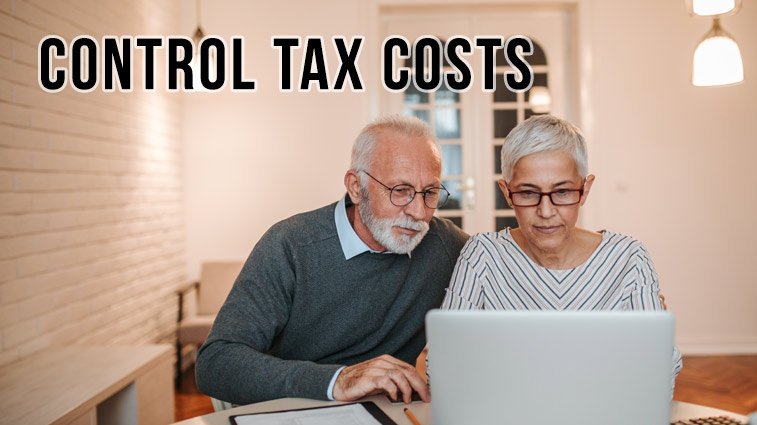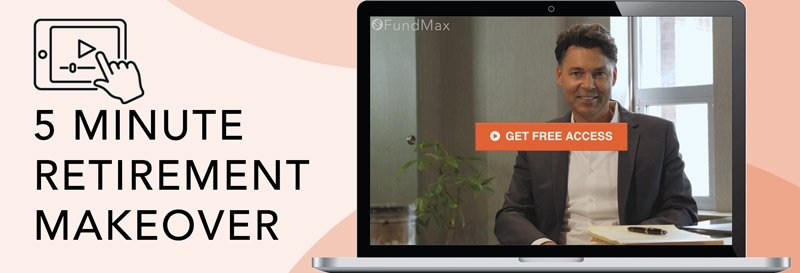Don’t be a Mike.
What is the price of neglecting income tax costs? You can handle your money with purpose by being aware of the impact of the type of money you use. Mike will show you.
Before he was a client of mine, Mike was getting ready to retire. In preparation for retirement, he took $90,000 out of his 401(k) to pay off some debt. Over the years, Mike bought and sold collector cars and had made quite a bit of side money doing so. Mike’s wife expressed that she would feel more comfortable if they had no debt. He had been using his home equity line of credit to buy cars and owed a balance of $90,000 to the bank. It made sense to him to take money from his retirement account to prepare for being retired. Unfortunately, this good intention resulted in a massive, unnecessary tax expense.
The IRS considered that $90,000 to be additional income. This pushed his tax cost up significantly more than usual. (We call that an “abnormal event.”) In response to his overwhelming tax-expense experience, the next year, Mike ended up paying zero income tax. That’s because rather than using his retirement accounts to supplement his income, after his high-tax-cost experience, he used his bank savings to supplement his income (another unfortunate choice). He paid the taxes with non-retirement assets.
In the third year, Mike began using his retirement account, and his taxable income was $78,950. He paid just under $10,000 in income taxes.
What this all means:
If Mike had taken money out of his after-tax account to pay off his $90,000 debt, he would have saved $10,326 in unnecessary income tax cost.
Mike is a highly intelligent, very sharp individual. He’s no dummy. He was paying attention. As far as he knew, he was doing the right thing. He might have even talked to someone about it, but he evidently didn’t talk to a retirement-experienced CPA about it. As a result, he paid an extra $10,326 in taxes that he can never get back.
Talk about a fee—that’s an expensive fee, and you have to pay it. Because you have to settle up with the IRS each year, there is no way to reconcile a high tax year over time. The key here is planning. This could have all been avoided if Mike had the knowledge to be paying attention to the impact of the types of money to use.
Always Know Which Tax Bracket You’re In
A simple but massively important tip is always to be aware of which tax bracket you’re in and how close you are to the next one.
Just one dollar of income can push you from the 12 percent tax bracket to the 22 percent tax bracket—and that dollar will result in double the income tax for the next dollars of income!
The tax laws and tax brackets change often, but I will use the 2019 income tax brackets shown above to demonstrate how important this concept is.
Notice that in the chart above, a married couple who is filing jointly will be in the 12 percent tax bracket if their taxable income is up to—no more than—$78,950 for the tax year. But if they were to make $1 more—$78,951—all of a sudden, they’re now in the 22 percent income tax bracket. That dollar they earn above $78,950 will now cause them to be taxed at 22 percent, which is almost double the tax cost of being in the 12 percent income tax bracket.
What this means:
For example, when you do your after thanksgiving projections, and it looks like your taxable income will be just under $60,000 for the current year, you should consider converting $20,000 to a Roth IRA to raise your taxable income to the top of the 12% tax bracket.
Or if when you do your after thanksgiving projections and it looks like your taxable income will be just over $80,000 and you still need more from savings to make it through the rest of the year, rather than taking money from a taxable account, take it from your non-qualified or tax-free accounts.
Do this Simple step to Save Income Tax Cost
One of the biggest expenses in retirement is taxes. Keeping your tax costs consistent from one year to the next can save you. If you are like most Americans, you typically find out what your tax cost is when it is too late. If you are on the ball, in late February or early March, you collect your tax statements and project what you owe or what your refund will be for the previous year. You can feel good that you did not wait until the last minute to get your income taxes prepared. At least you are not procrastinating, but this habit alone is likely causing you to miss a significant opportunity.
Let’s talk about tax PLANNING rather than tax preparation. Every year, you can pay your taxes deliberately and likely save thousands of dollars some years.
If you feel like you know very little about income tax, I am going to show you one simple trick that will set the stage for massive savings over the next few years.
What’s your 43?
Traditionally, line 43 of your income tax form has been the simplest and easiest way to know if you may be missing something on your income tax costs. For years I have reiterated, “What’s your 43, What’s your 43? It is an easy way to remember to pay attention to one thing.
In 2018, the form changed, and taxable income was found on line 10.
So here is an assignment …
What was your taxable income this past year?
What was your taxable income the year before?
What about the year before that?
I know the world of income taxes can be daunting, but knowing this one number can save you thousands of dollars.
Like most aspects of retirement planning, income taxes can feel complex and overwhelming. And they are complex and can feel overwhelming.
But, you know what, it doesn’t have to be that way!
By understanding one simple principle, you can manage your income tax cost.
What this means:
To minimize your tax cost, we are looking for consistency. As much as we are able, we want to pay our taxes deliberately, being mindful of what tax bracket we end up in and how close we are to the next marginal tax change.
All income dollars are not equal.
Why is consistency important? Because when you have different amounts of taxable income each year, you could pay significantly different amounts in income taxes. For example, when you transition from one tax bracket to another, you could be paying twice as much income tax on those next dollars as you’re paying on the previous dollars.
Consistency is important also because we have to settle up with the IRS every year. This isn’t really fair to taxpayers because if you have a lower tax year, you don’t get credit for it, and if you have a higher tax year, you pay proportionately more. Are you feeling a bit glossy-eyed? You’re not alone. Be patient…I will let you know what you can do.
Stop Overpaying Income Tax: The After-Thanksgiving “Sale”
Tax Planning vs. Tax Preparation
Here is one simple thing you can do that will give you great clarity about where you stand each year: project your taxable income for the current tax year before it’s too late.
***This is massive and needs to be showcased***
Project your income tax costs before December 31st. Doing this, you will automatically position yourself to save money on your income taxes.
I recommend that you have an accountant or CPA who works with a lot of retirees prepare your taxes unless it’s really, really easy for you to do it yourself. After Thanksgiving of each year, ask your accountant or CPA to project what your income tax costs are going to be for the current year. If it looks like they’re going to be higher than in the past and you’re not contributing the maximum amount to your company savings plan, you may be able to use your tax-deferred savings plan, to contribute more. If your income taxes are going to be lower than normal, you can do a Roth conversion to raise your income tax cost to keep your taxes consistent year over year.






